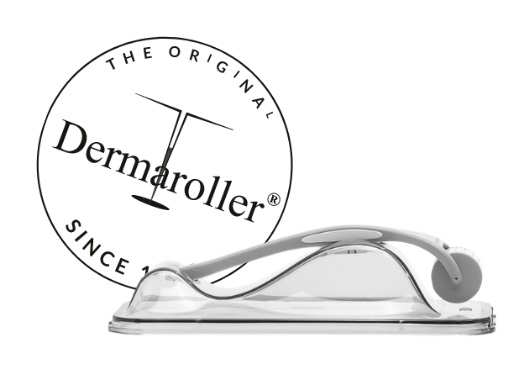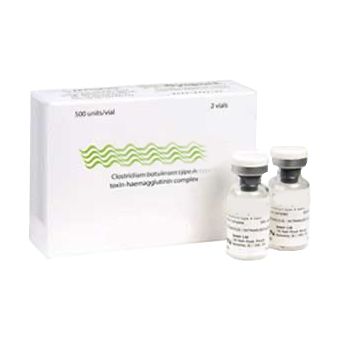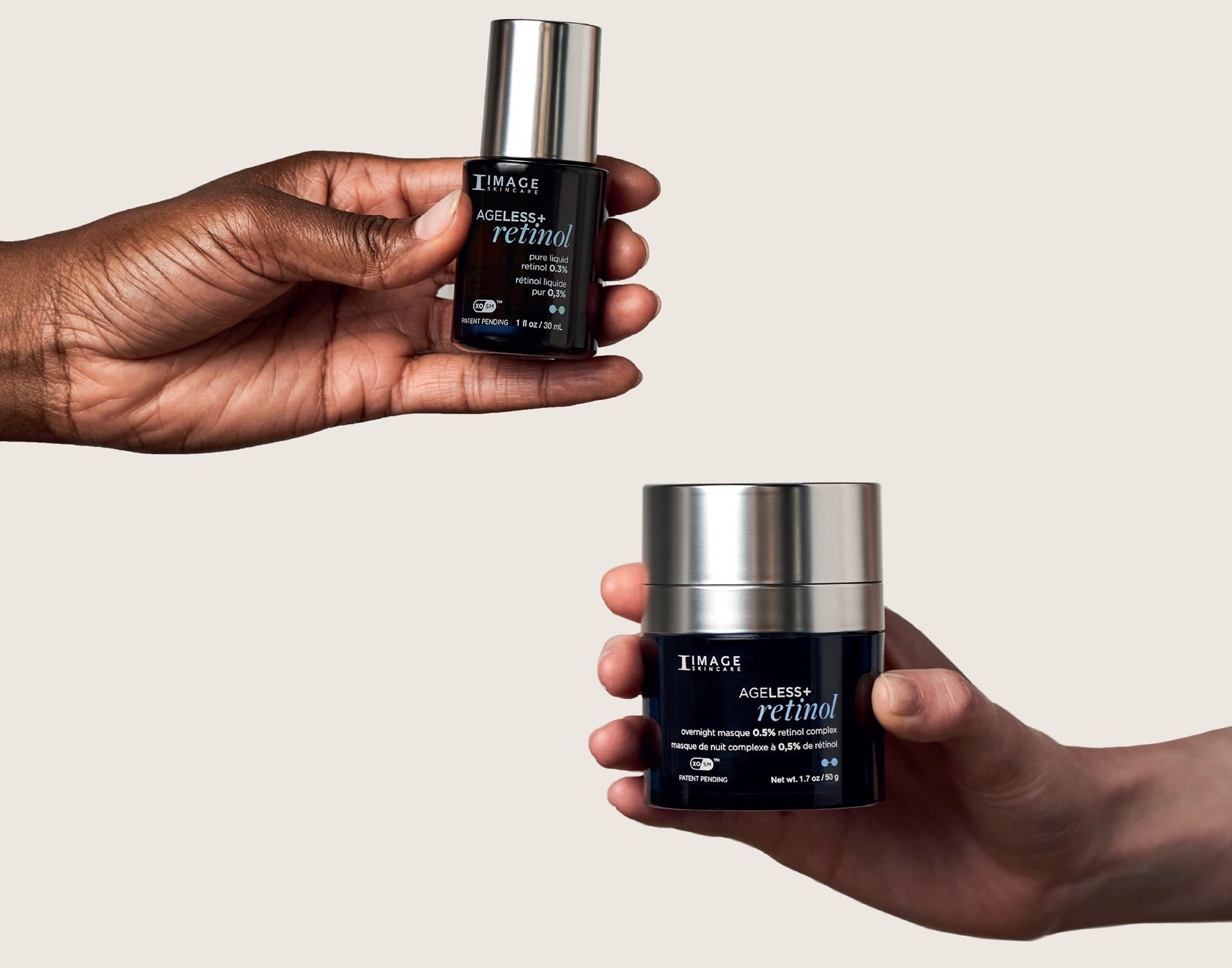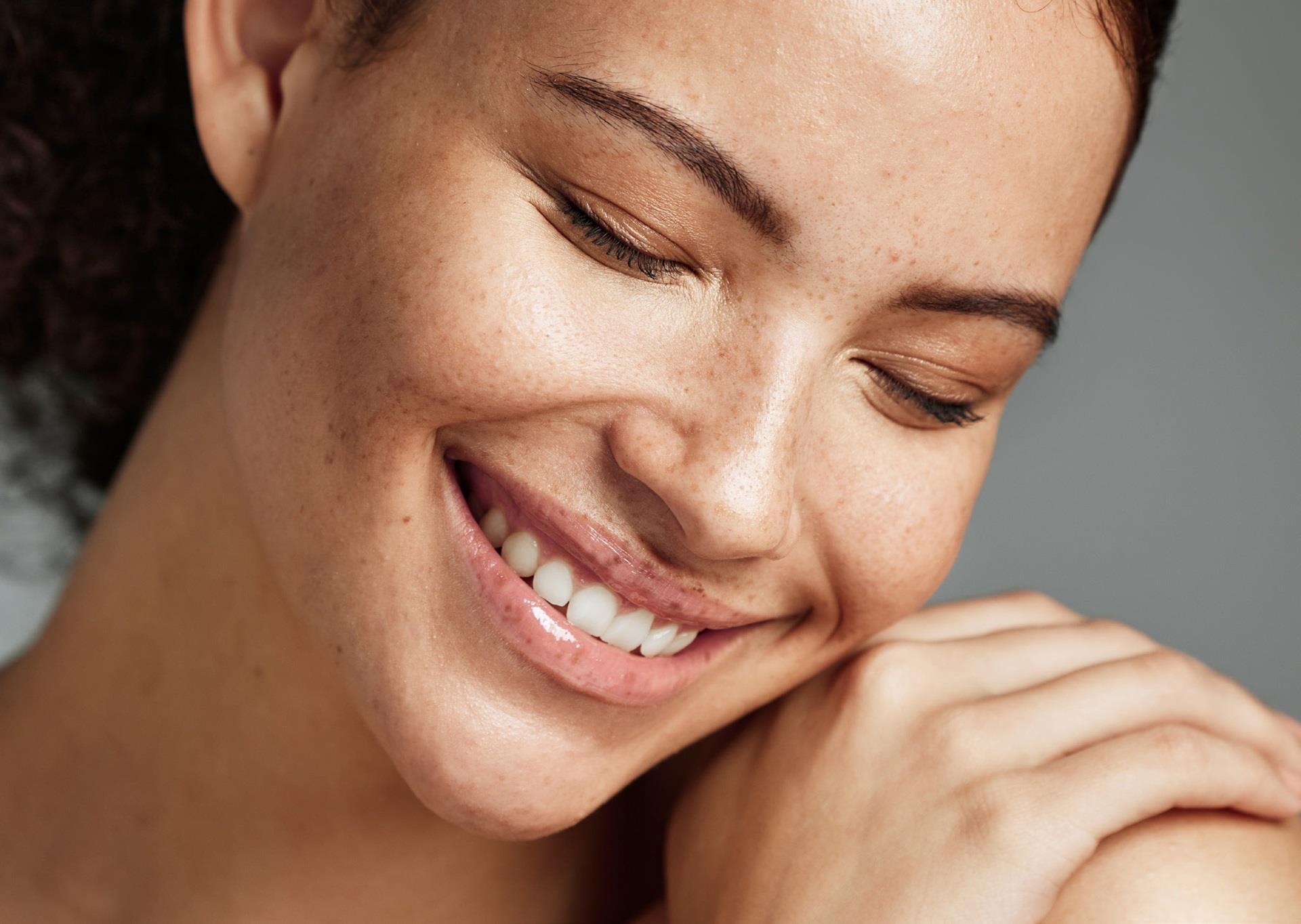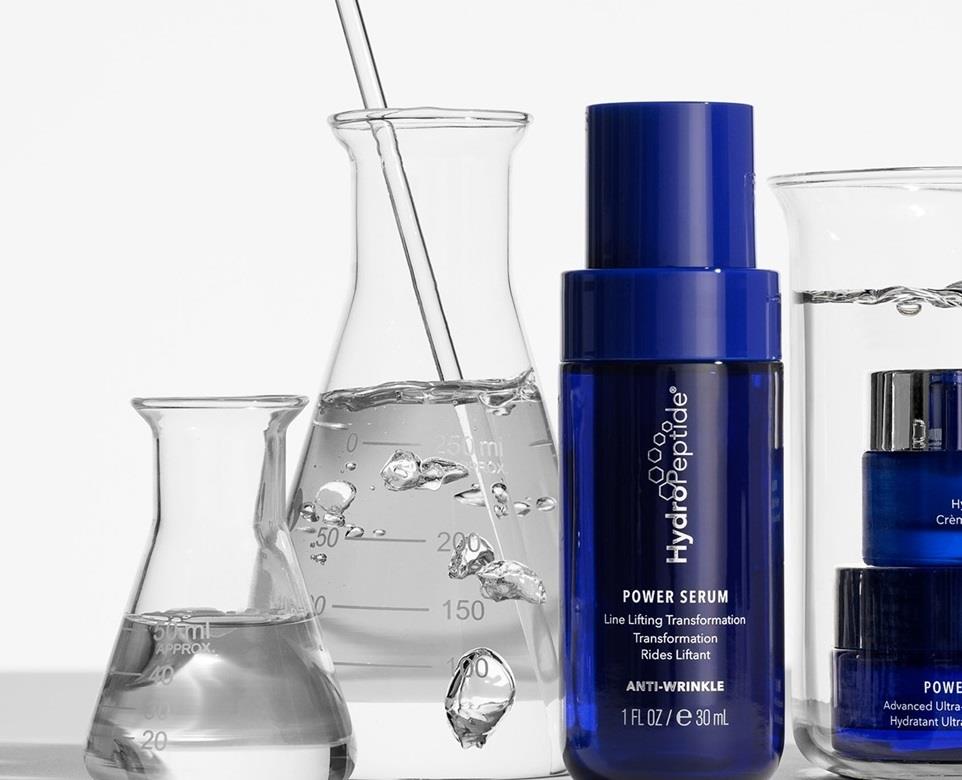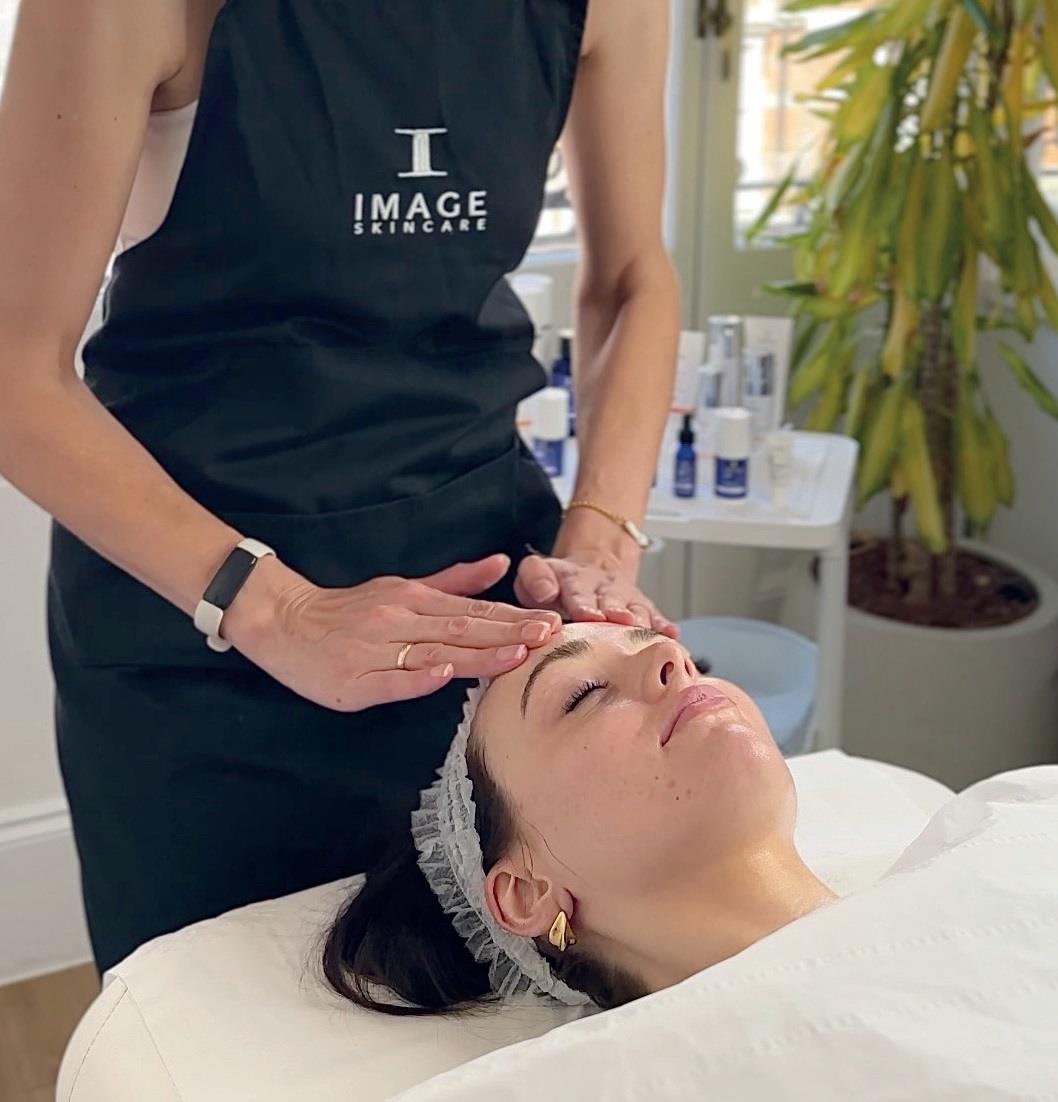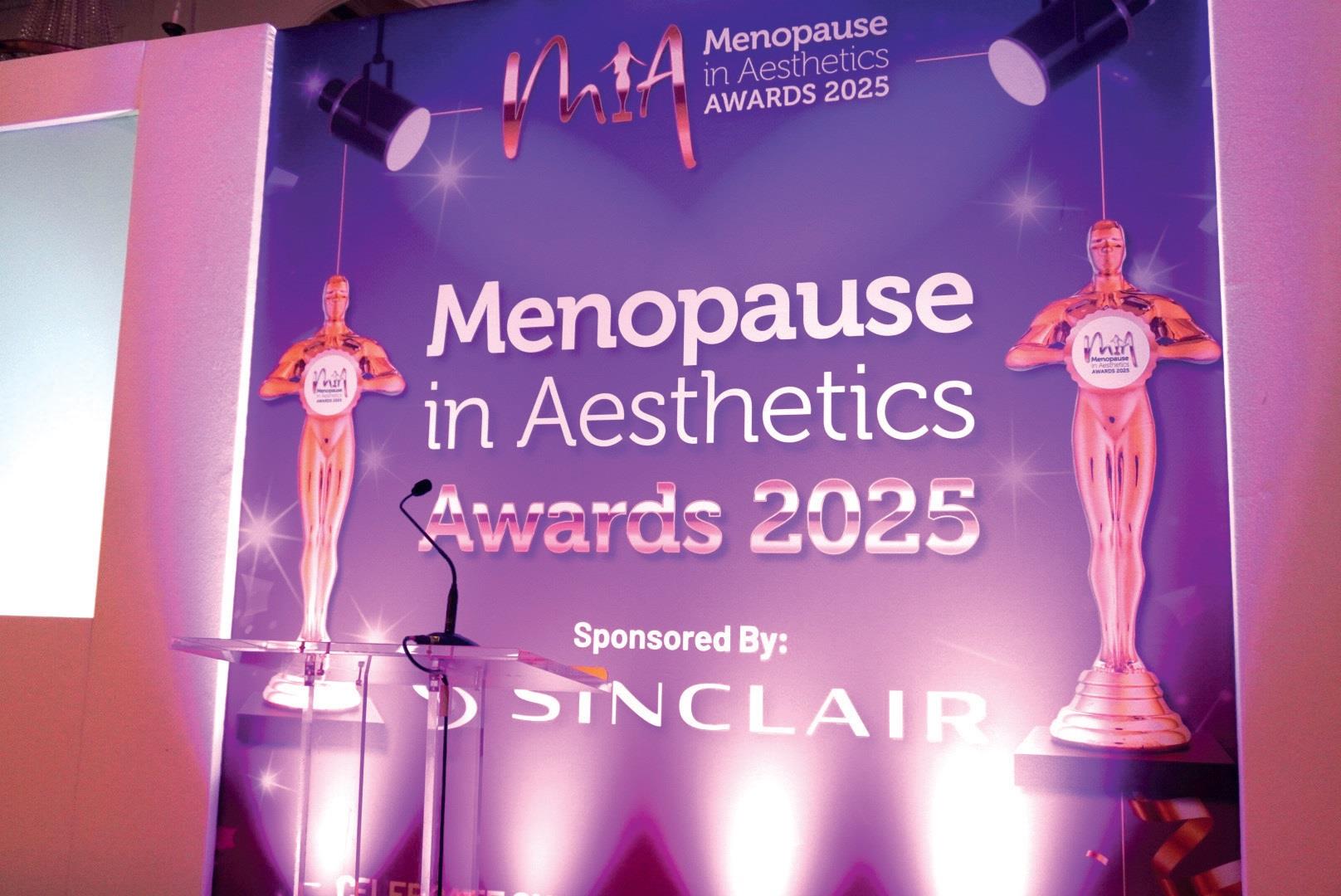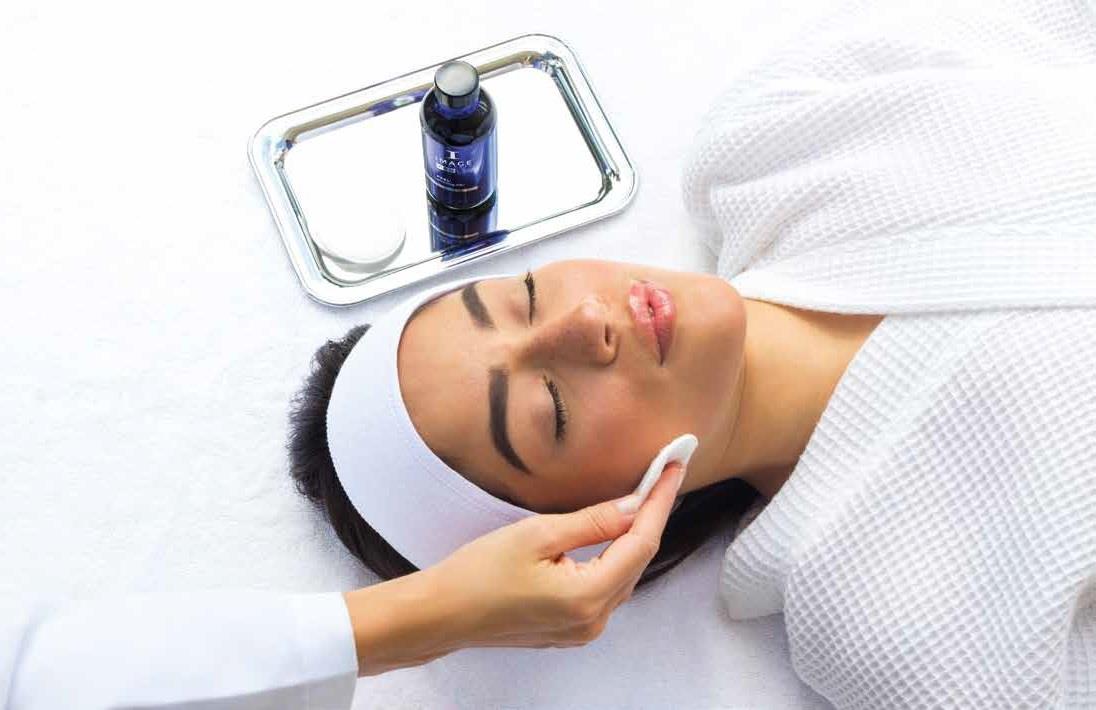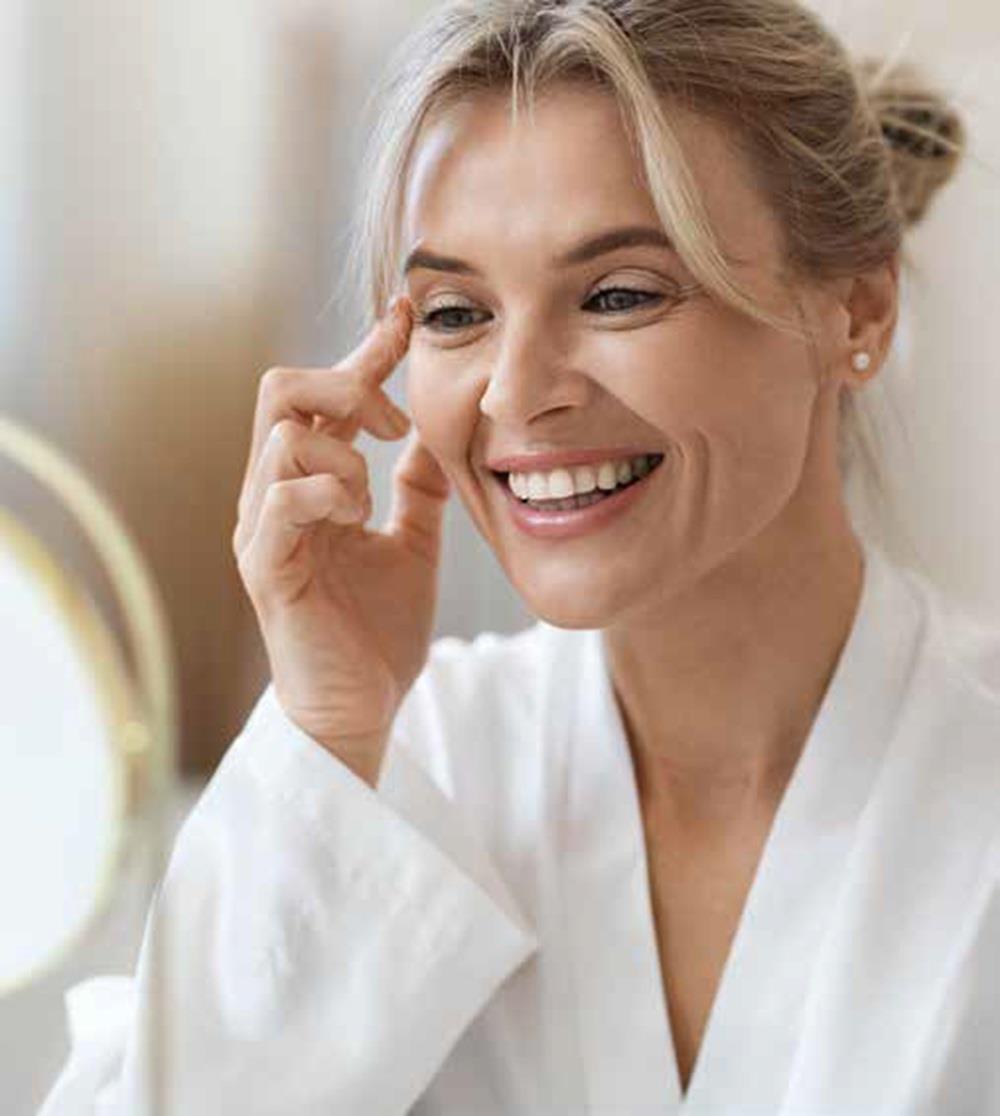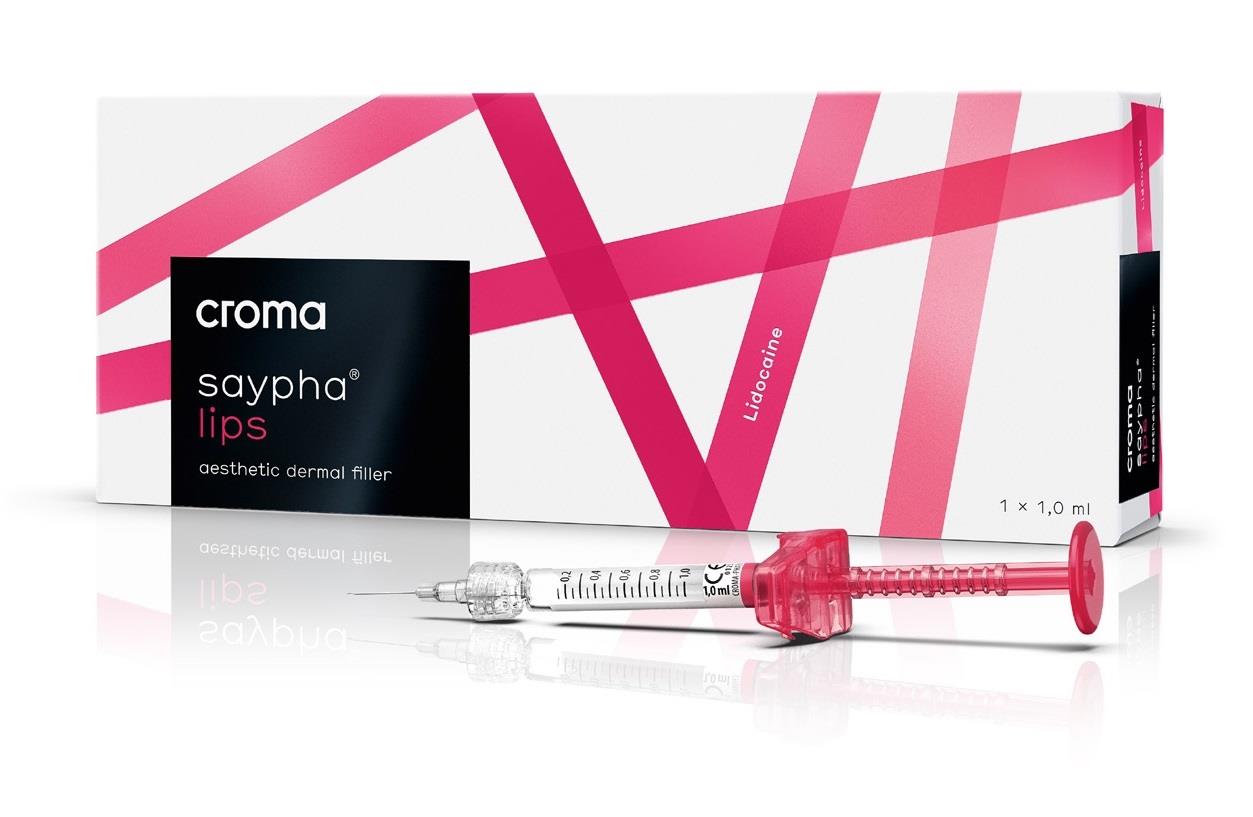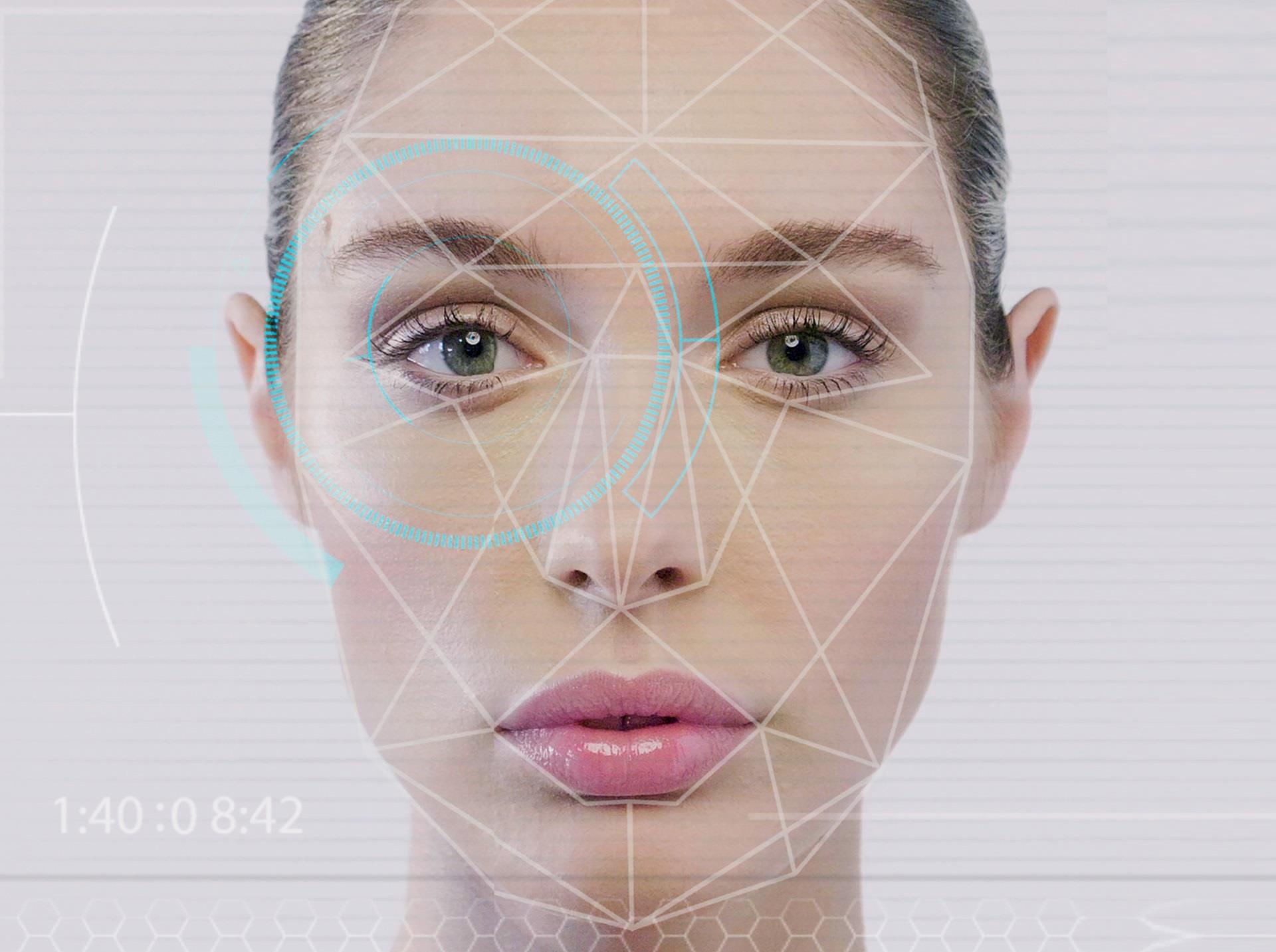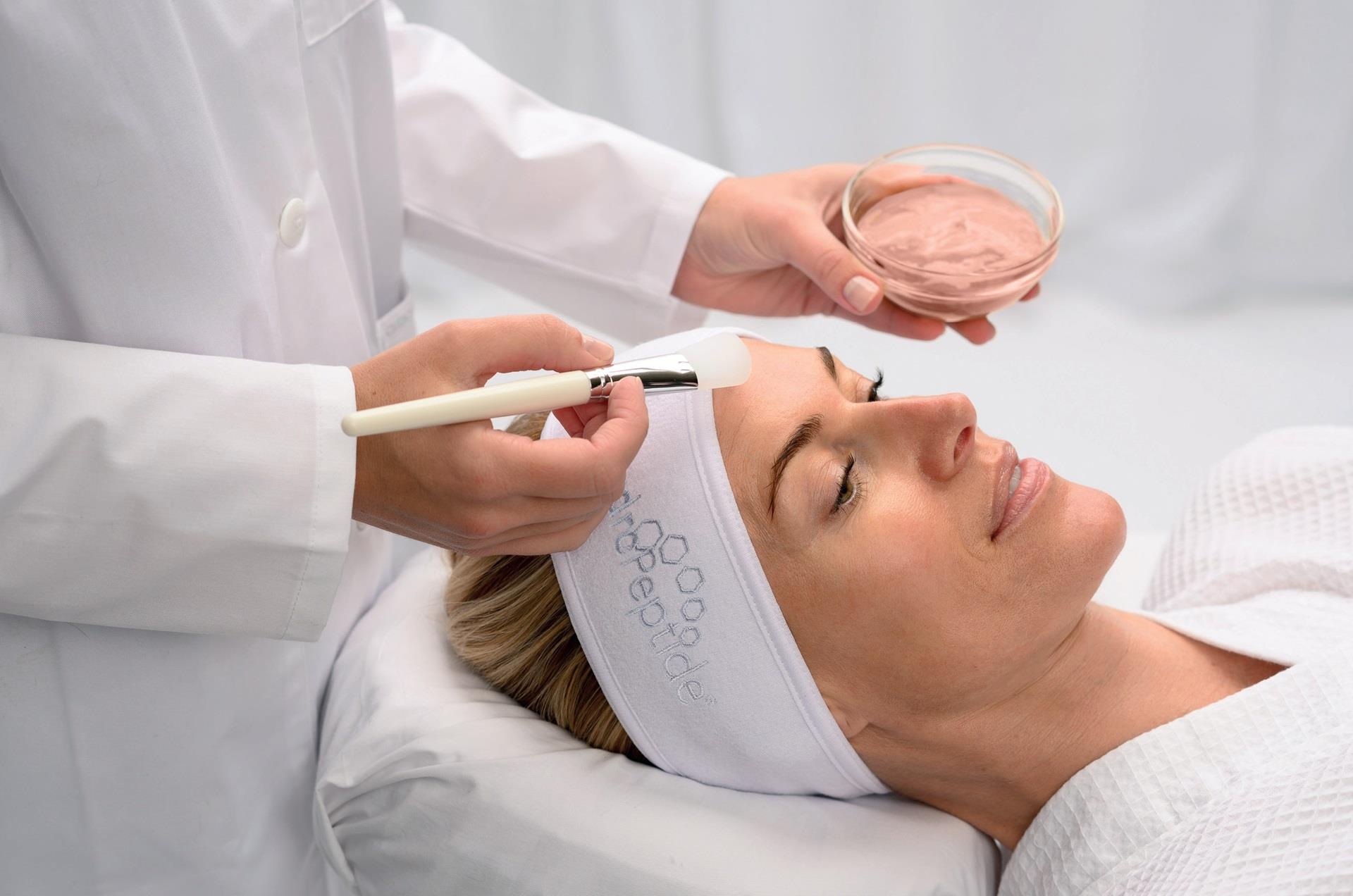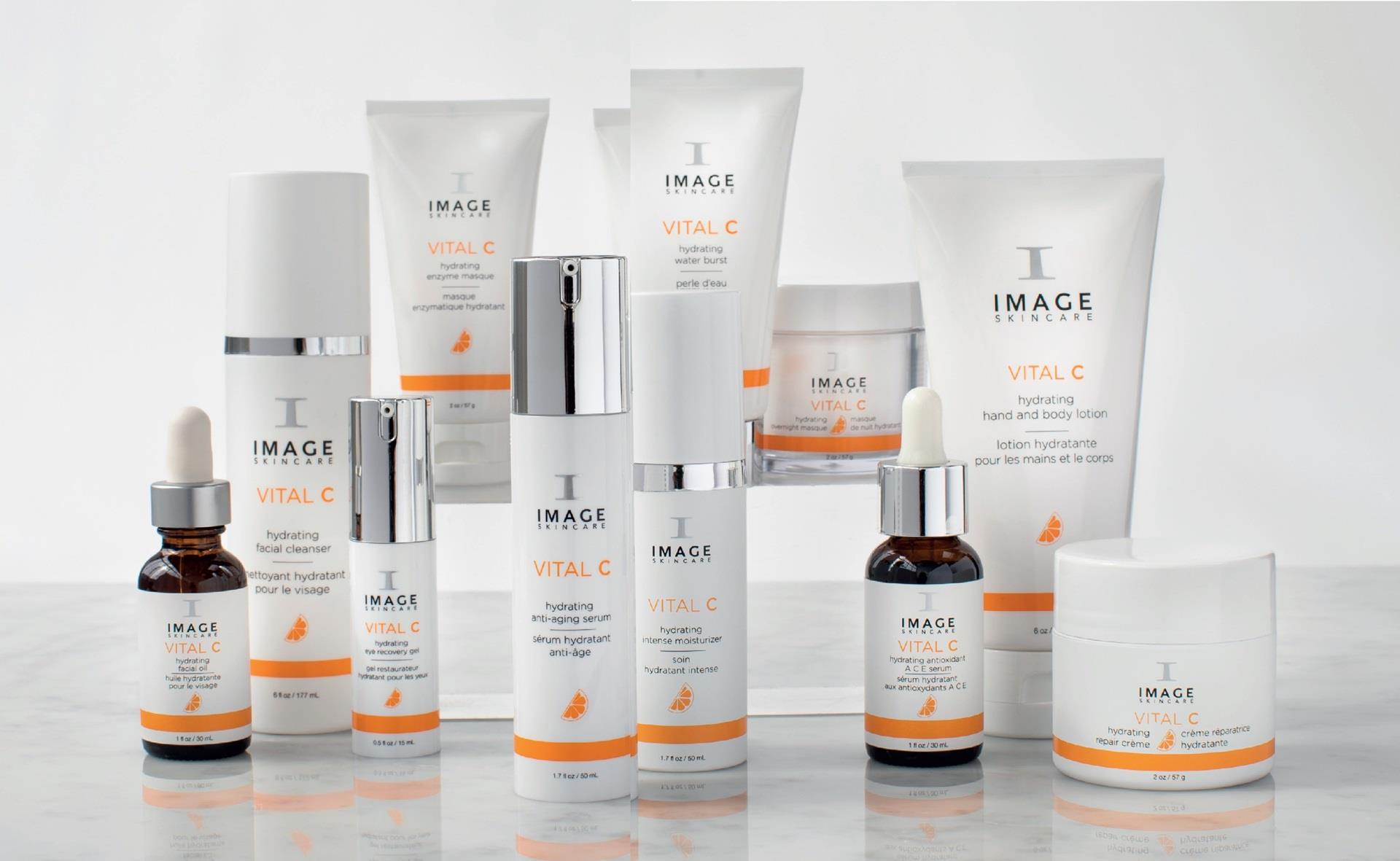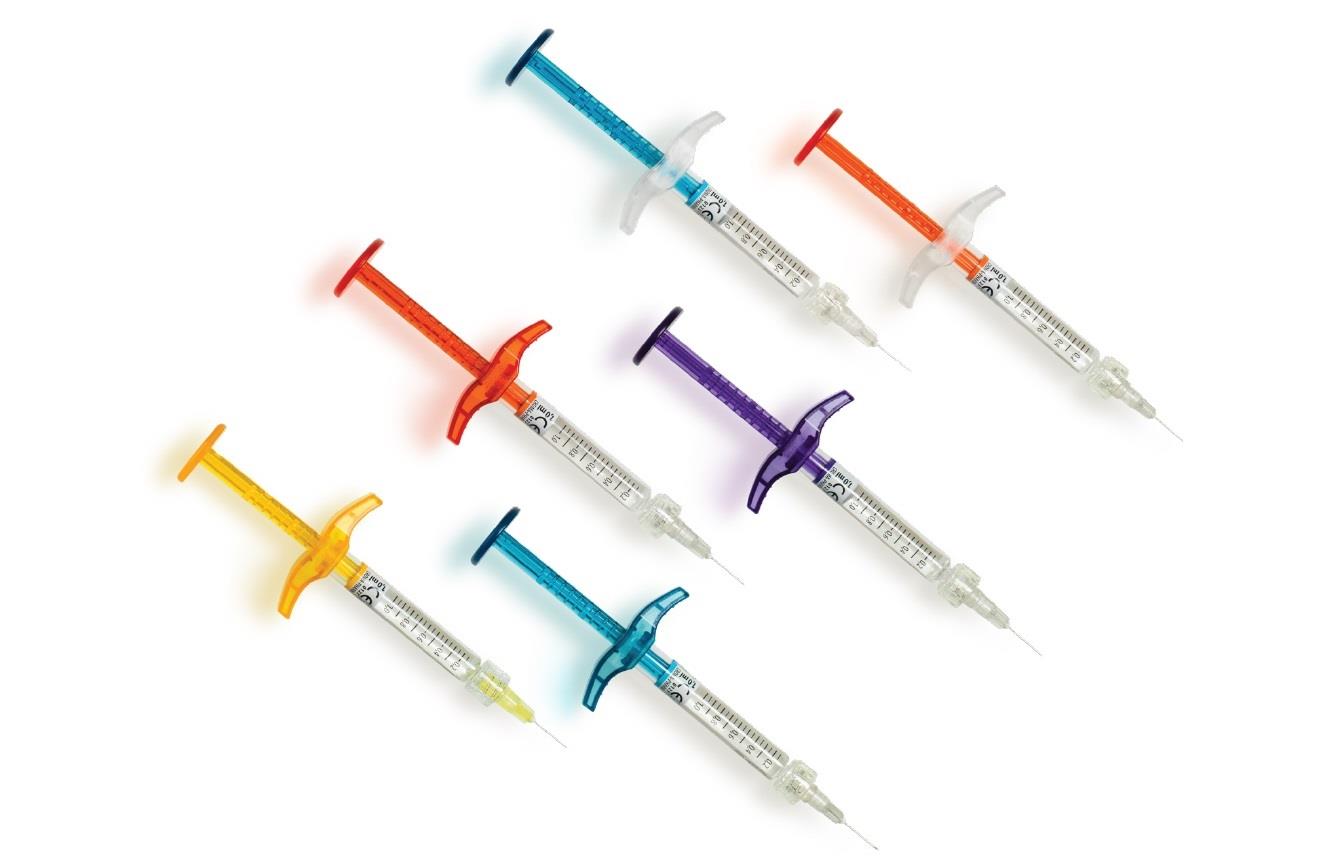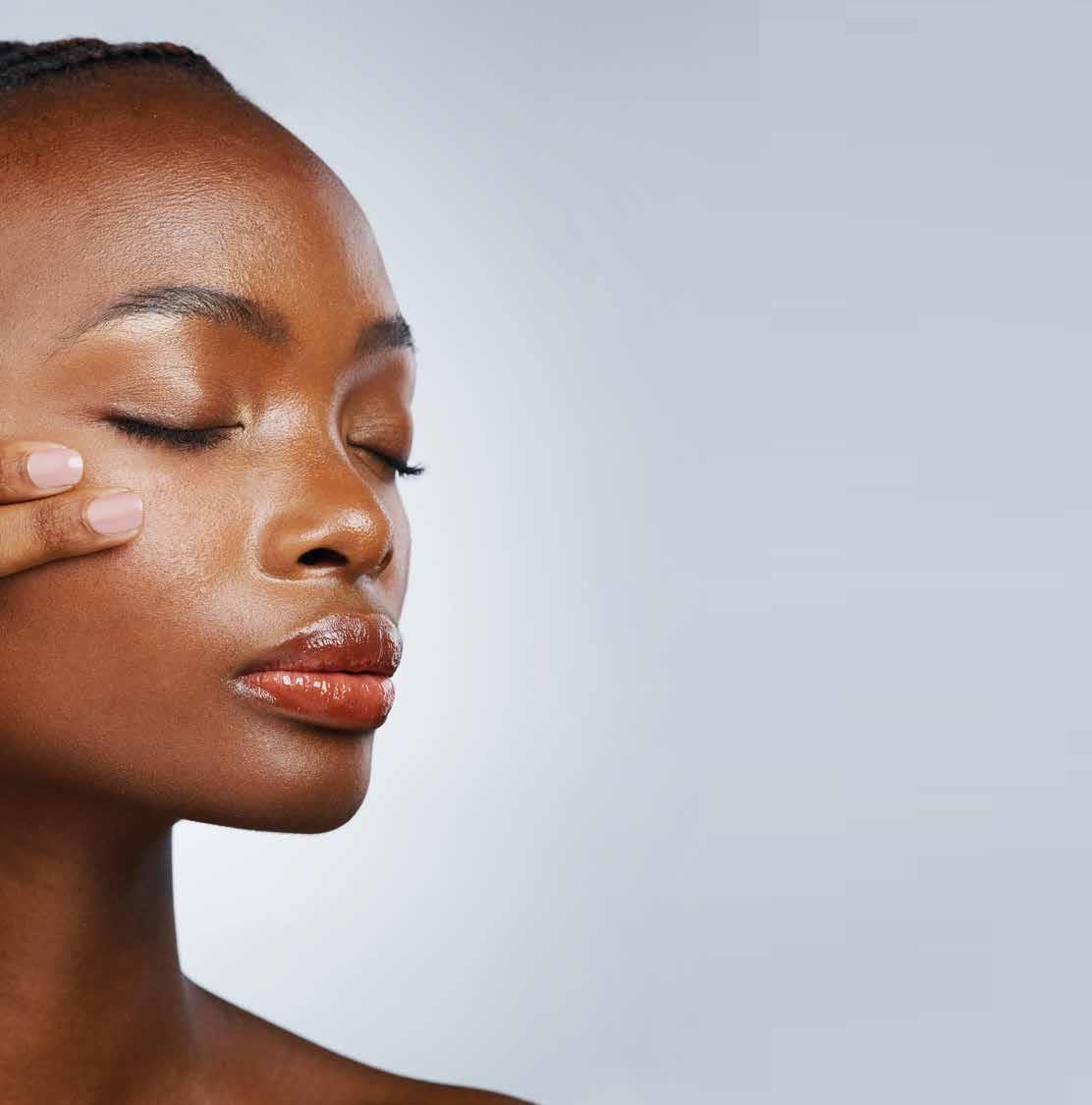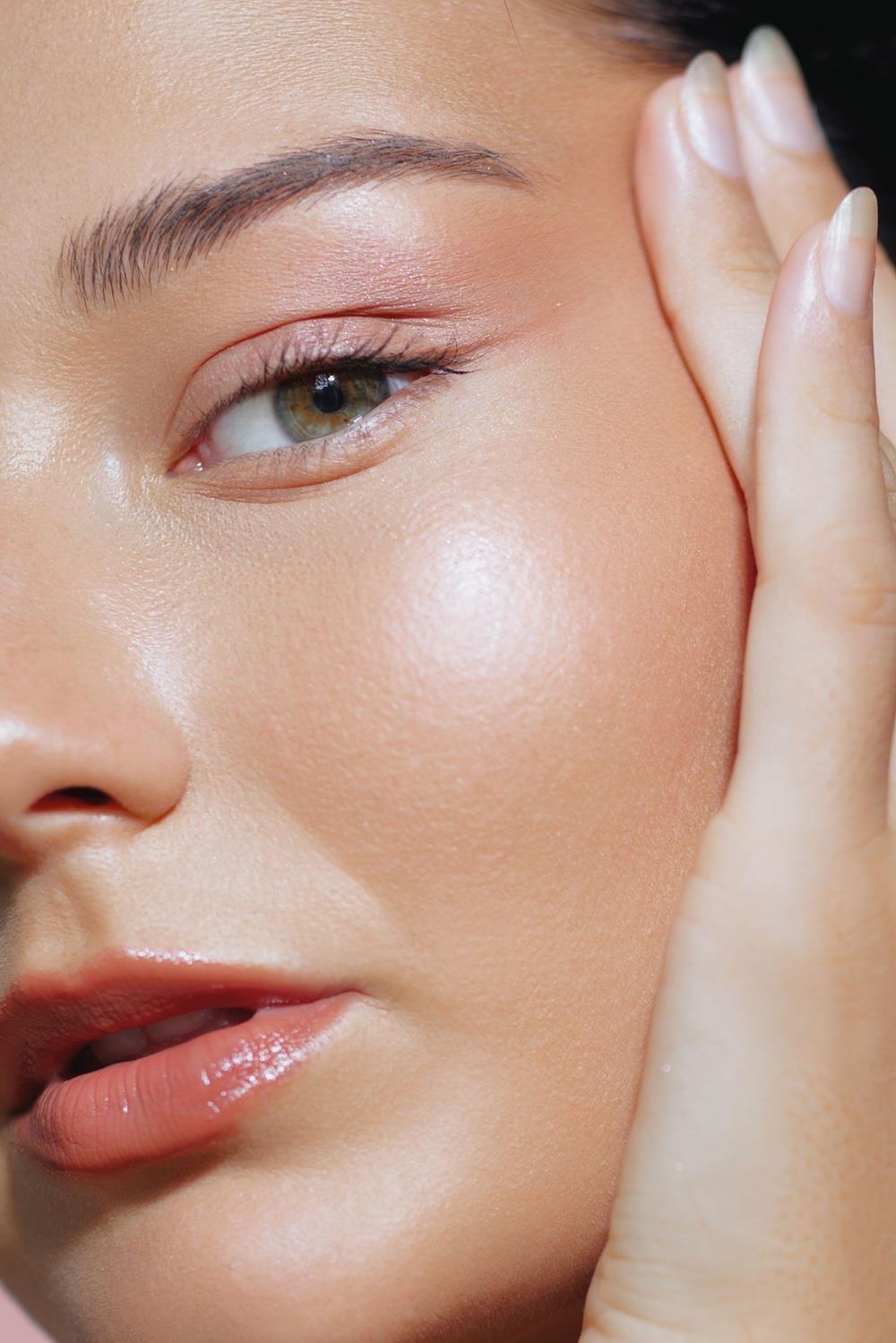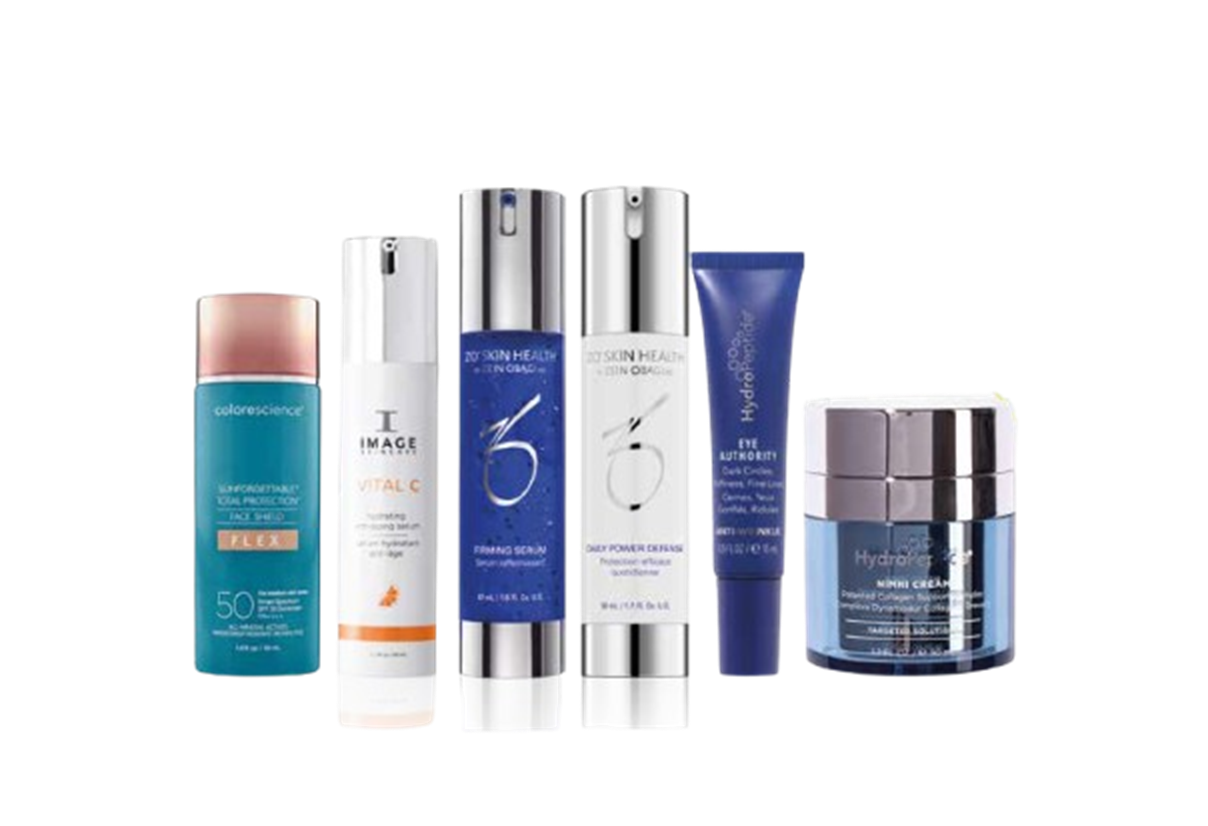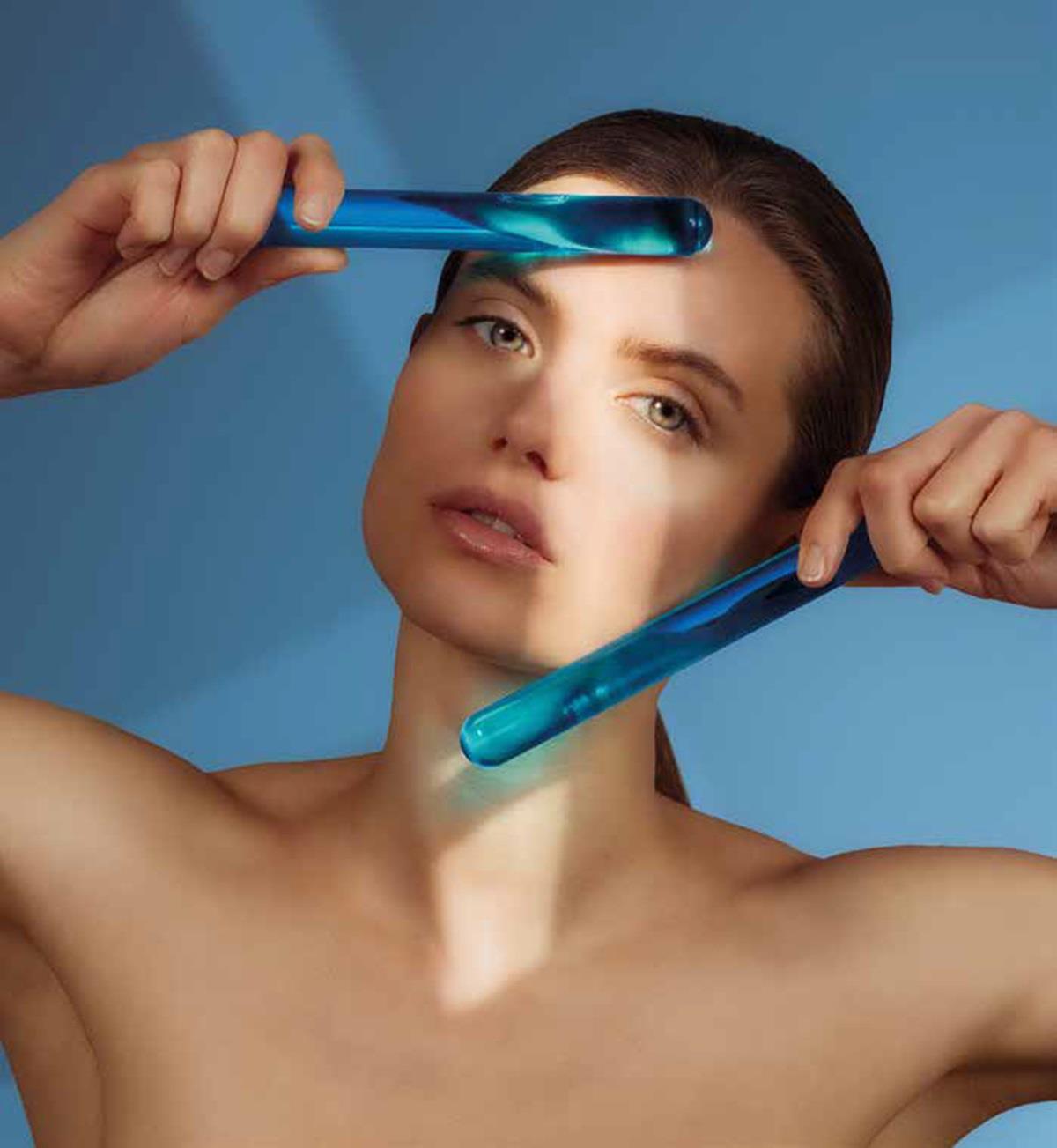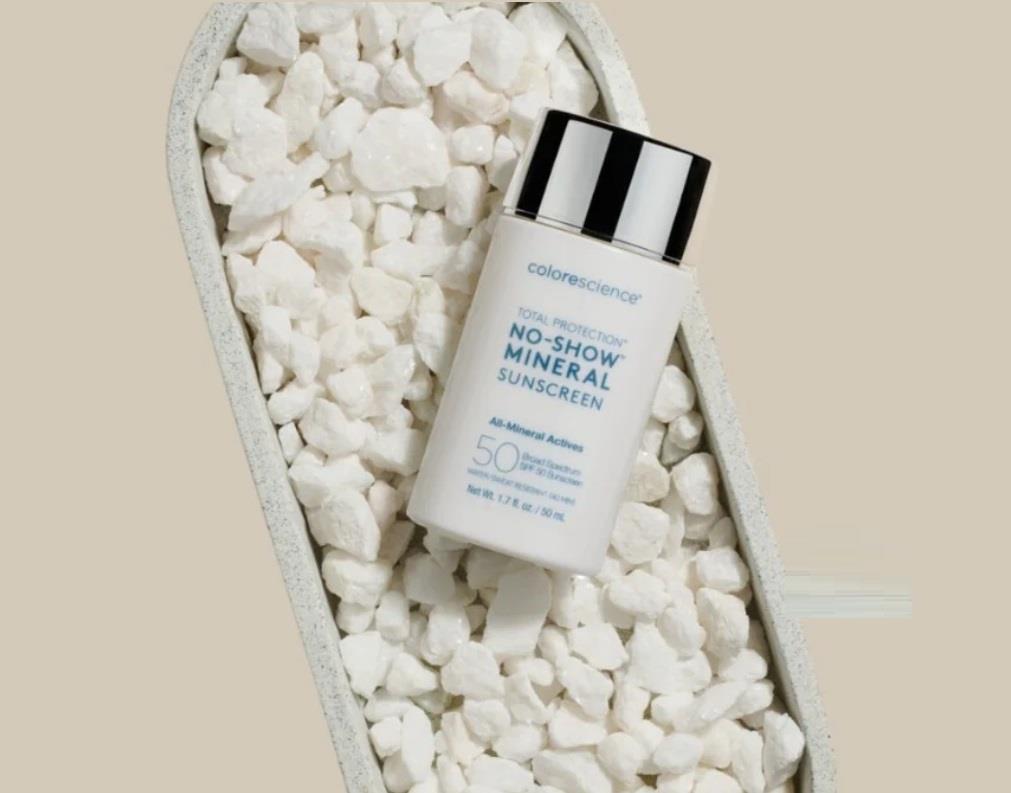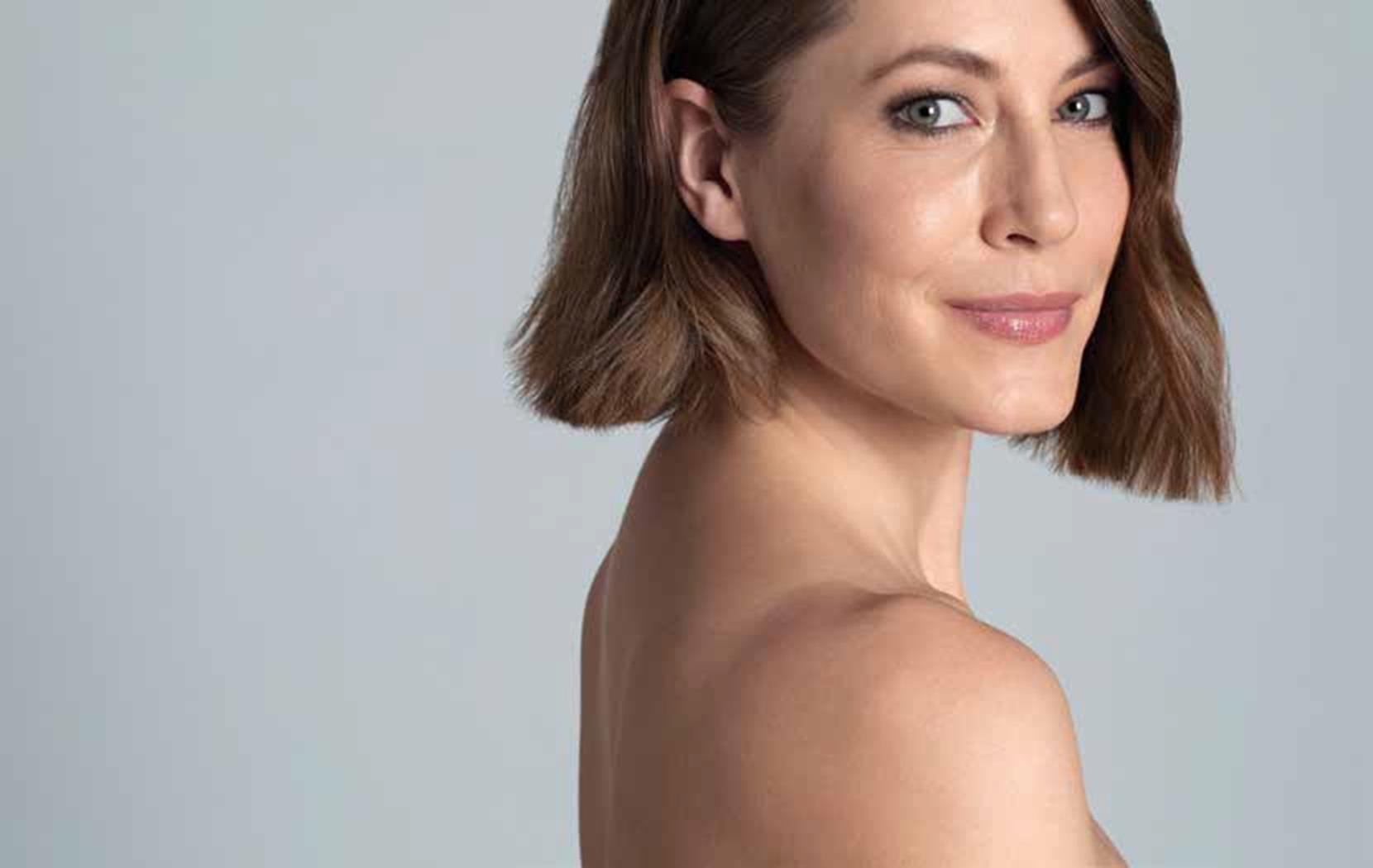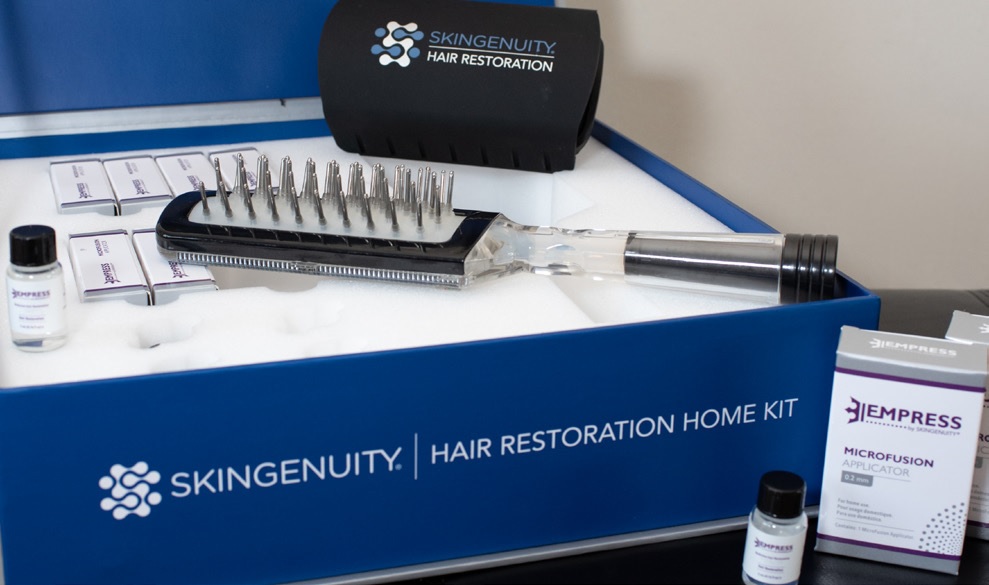
Menopause has long been a taboo subject and, as such, many women have suffered in silence with little-talked-about symptoms, one of which is hair loss. It is common for women to shed or lose their hair during menopause and this can range from over all thinning, to developing patches of baldness, to full loss of hair.
So why does this happen? When we enter peri-menopause, the early stages of menopause, our hormones start to drop off, in particular progesterone and testosterone. When our progesterone starts to drop during peri-menopause our oestrogen is starting to rise. This imbalance in hormones can lead to loss of hair because these hormones (when in balance) usually help hair grow faster and stay on the head longer.
The testosterone in our bodies also changes to weaken the hair on our head and strengthen the hair on our face, breasts, and legs. If you are having hair loss, there is an element of testosterone playing a part. The other factor that plays a part is adrenal fatigue. “I always do an adrenal profile on people I treat for hair loss”, says Deborah. “Changes in your female hormones will affect your adrenal glands and especially if you are not sleeping.”
Of course, hair loss is distressing at any time—it can have a huge impact on your confidence and self-esteem—but if you are also going through the emotional rollercoaster that is the menopause, then losing your hair can be particularly devastating.
Thankfully, not only has our understanding of the menopause grown but also what we can do to help women manage their symptoms. There are a wide range of hair restoration treatments and technologies available today to help restore thinning or declining hair, as a result of menopause or for any other reason. This means it is now possible to achieve impactful results and regain fuller-looking hair without the need for hair-transplant surgery.
Seek advice from a specialist
Sadly, our GPs are often not equipped with the resources to deal with peri-menopausal/menopausal patients. Women often complain that they are dismissed or put-on anti-depressants. Seeing a specialist will mean you can get your blood profiles done and find out what is going on specifically for you. Menopause is different for every woman and it’s only by getting a thorough understanding of your individual hormone levels that we can truly offer a tailored and effective solution to help you manage your symptoms, and that includes hair loss. For people with hair loss I do an adrenal profile. Once I have got that I can address what we are going to do to slow down the hair loss process and to reignite the follicular activity.
Do not wait until it is too late
Are you worried about your hair now? Do not be embarrassed to seek help. The best time to start treatment is when you first notice your hair coming out. There is a chance at this stage to help you before too much damage is done. If you are five to ten years post-menopausal and you have not taken any hormone supplements it may be too late. Many women are in denial about losing their hair but once you are bald, very little can be done other than wearing wigs.
Prioritise a good night’s sleep
Many women struggle to sleep during menopause but getting a good night’s rest is one of the best things for body and mind, including your hair. If you are not sleeping your adrenal glands are working twice as hard overnight just to keep you functioning and when there is not enough energy within your hormones your adrenal glands will then dip into the muscle fibres in your legs and your bum for energy. That extra glycogen it takes from there will also be depleted from the scalp.
Try a hair loss treatment such as SkinGenuity
There is now a plethora of options available to address hair loss. The in-clinic treatments are really good but not everyone wants to invest in that pain level or time process. We now have a new hair system that women can actually do at home—SkinGenuity Hair Restoration Home Kit.
In the little vials contained in the kit, there are growth factor serums which we use as a treatment regime along with a serum and brush. When needling the hair, you infuse the follicles with all the growth factors and when you use the brush you are infusing your hair with the nutrients it needs to regenerate and stimulate the blood supply to the scalp to help the skin tissue absorb it. I am seeing fantastic results with this. One thing it is important to remember, when it comes to hair loss be careful of purchasing unproven products online, always seek guidance from a specialist.
Be patient
We live in a really 'fix-me-fast' world but when it comes to hair that is not possible. You did not wake up in 24 hours with balding patches, it was a process of loss of follicular strength, hormones and adrenal stress that has brought you to where you are. Any treatment will take time because every follicle does not have its full anagen cycle at the same time. This is why working with a specialist is key so they can guide you through it.
For more, see Deborahthemenopauseconsultant.com

 Added to basket
Added to basket

 Unapplied Changes
Unapplied Changes


